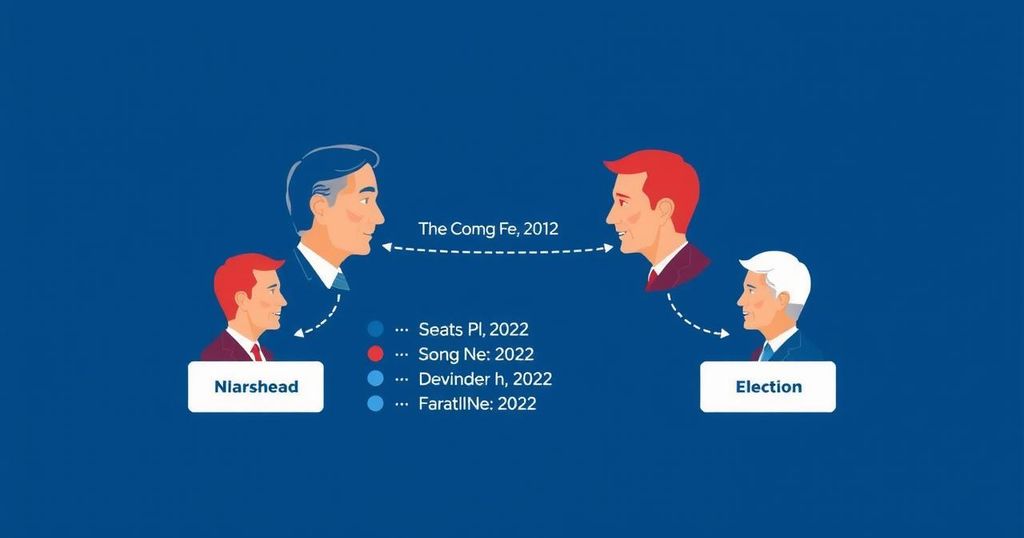In the event of a Donald Trump electoral victory, Australian Prime Minister Anthony Albanese should prioritize an early visit to Washington to affirm Australia’s strategic alliance with the United States. A focus on trade, security, and regional cooperation is imperative as America navigates its current democratic challenges and political divisions. The importance of Australia’s role in supporting a collaborative Indo-Pacific framework must be emphasized, particularly in light of rising geopolitical tensions.
In the wake of a potential Donald Trump victory in the upcoming US elections, Australian Prime Minister Anthony Albanese should promptly schedule a visit to Washington. The current state of American democracy is under intense scrutiny, and tribalism among voters is stark, with clear divides along demographic, educational, and ideological lines. In such a divisive environment, Albanese must act swiftly to underline the importance of Australia as a steadfast ally and partner to the United States, irrespective of the election’s outcome. Trump’s appeal resonates with many Americans who feel alienated and dissatisfied with the status quo, advocating for policies that favor unilateralism and an insular approach to international relationships. His foreign policy style, often described as a “chaos theory,” relies on unpredictability, which he believes secures respect and influence from other world leaders. For instance, Trump’s hesitations regarding the defense of Taiwan and his overt friendliness toward authoritarian regimes exemplify a departure from traditional diplomatic norms. Given this backdrop, Albanese’s early outreach to Washington is crucial. The Prime Minister should engage with not only American leadership but also key allies in the Indo-Pacific region, particularly Japan, to ensure that Australia’s strategic interests are represented and prioritized. It is important that Australia conveys to the United States the relevance of collaborative security and economic agreements, such as AUKUS and the Quad leaders’ meeting, in reinforcing mutual interests. Moreover, the Australian government must effectively communicate the benefits of maintaining a cohesive trade and security architecture in the Indo-Pacific, highlighting the risks of allowing regional power dynamics to shift unfavorably, especially with China’s growing influence. The historical context of the Trans-Pacific Partnership serves as a poignant example of what could occur if the US loses its commitment to regional partnerships. Albanese’s discussions should encompass a broad range of topics, aiming to align both nations on trade, regional security, and the necessity of a rules-based international order, which is pivotal for both America’s global standing and regional stability. Ultimately, the Australian government possesses valuable insights and experiences that can contribute positively to US policy discussions. As partners who share foundational democratic values, it is essential to approach the evolving political landscape in a manner that bolsters both national interests while promoting broader international cooperation.
The article discusses the implications of a potential Donald Trump victory in the US elections, focusing on the effects it may have on international relations, particularly for Australia. The author highlights the current divisions within American society and Trump’s rise as a leader who channels the sentiments of those disaffected by the current political climate. The discussion emphasizes the importance of proactive diplomacy and strategically leveraging Australia’s relationship with the United States, particularly in the context of security and economic cooperation in the Indo-Pacific region.
In conclusion, should Donald Trump win the upcoming presidential election, the Australian Prime Minister must take decisive action to reaffirm Australia’s strategic stance with the United States. By initiating timely discussions about shared interests in security, trade, and regional alliances, Australia can play a pivotal role in fostering a collaborative approach to the challenges that lie ahead. Such a proactive engagement will not only serve to safeguard Australia’s national interests but will also reinforce the broader objective of maintaining a stable and rules-based international order.
Original Source: www.theguardian.com







